Art and conflict: The Bristol story of a Bosnian refugee
- Published
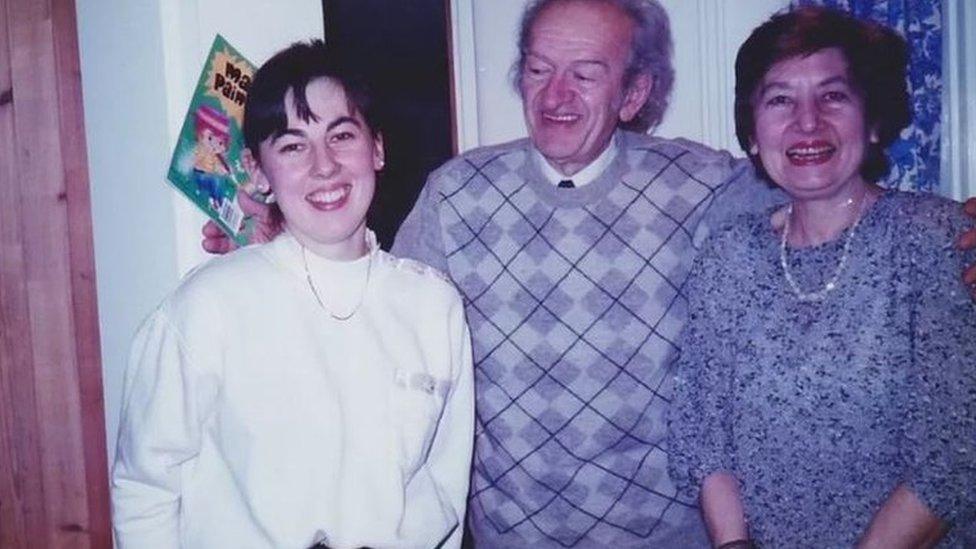
Dobrivoje Beljkasic with his daughter, Dragana, and wife, Gordana
At the outbreak of the Bosnian War in 1992, artist Dobrivoje Beljkasic lost his life's work in an artillery bombardment in Central Sarajevo.
He soon left his homeland with his wife Gordana, to settle in Bristol.
30 years later, an exhibition will be held in Sarajevo, Bosnia, to mark 100 years since Beljkasic's birth and feature work he completed in Bristol.
Beljkasic died in 2015, however his daughter, Dragana Smart, is co-curating the exhibition with the National Gallery of Bosnia.
The British Embassy in Bosnia and Herzegovina is supporting the project and the exhibition will run from October 26 until November 9.
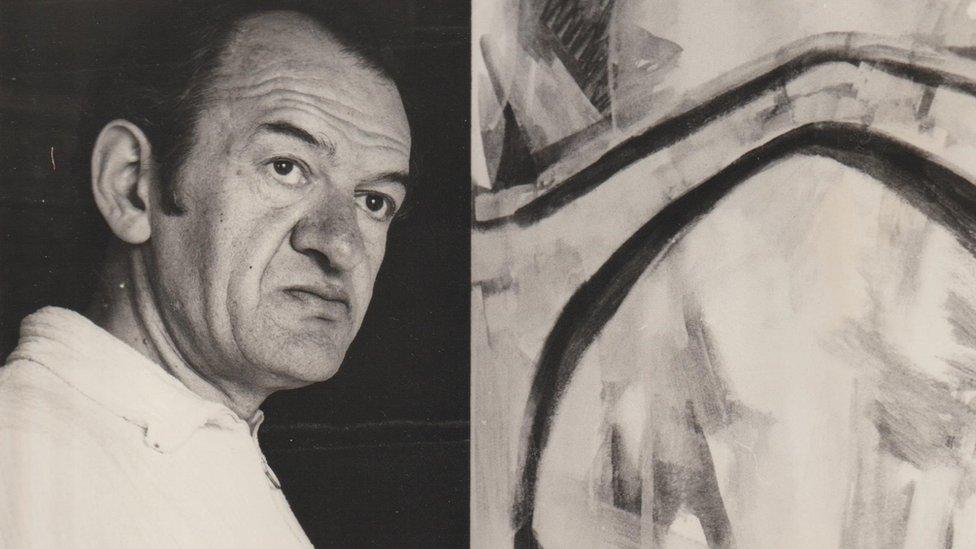
Mr Beljkasic had a studio in Sarajevo City Hall
Born in 1923 in the town of Vlasenica, Dobri Beljkasic started painting at the age of 16 and then continued studying art both in Paris and Belgrade.
He spent 70 years living in Sarajevo, and his life and work were featured in the Encyclopaedia of Fine Arts of Yugoslavia.

The Bosnian War took place between 1992 and 1995. Following the breakup of the former-Yugoslavia, rival ethnic factions fought for control of the region.

On the night of August 25 and 26, 1992 a vicious artillery attack from the hills destroyed Vijecnica, which used to be Sarajevo's old City Hall.
At the time, the National and University Library of Bosnia and Herzegovina was located in the building, alongside Dobri Beljkasic's studio.
Up to three million books, original manuscripts and priceless cultural works were destroyed in the ensuing fire and Beljkasic lost the vast majority of his extant work.
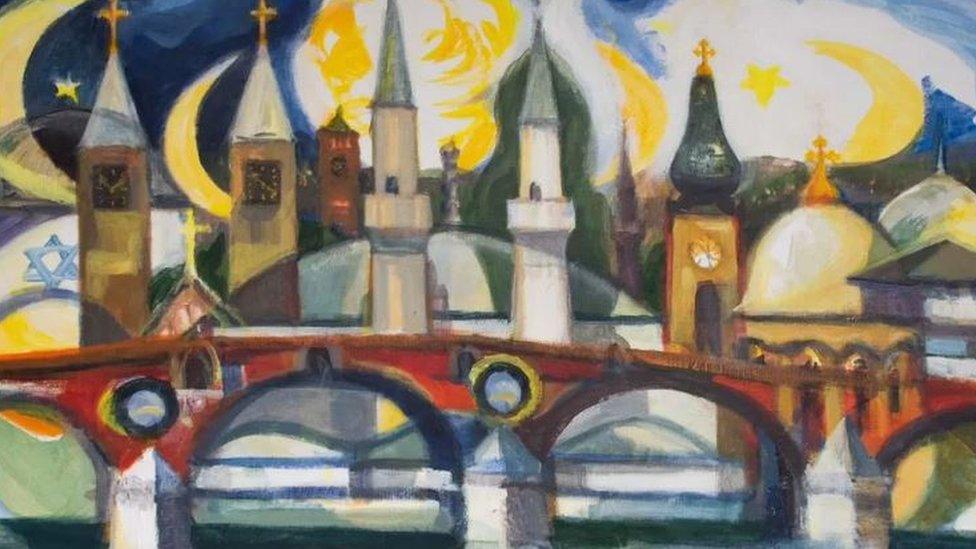
Mr Beljkasic lost the vast majority of his life's work in an artillery strike on his studio
Dragana Smart has lived in Bristol since 1991 and works in public engagement at the University of Bristol.
She said: "This was a targeted attack to destroy Bosnian cultural heritage - a huge tragedy."
"I think this exhibition tells the story of an often forgotten detail that part of Bosnian arts heritage perished in that attack too.
"The story of art as resilience - however many years after the war there can be new life and that the cultural heritage of a nation cannot be destroyed."
Following the loss of his studio, Mr Beljkasic vowed never to paint again and set off with his wife for south-west England.
"It was a really difficult journey [for my parents]," Dragana Smart explained, "They got on the last convoy from the Red Cross.
"The UK introduced different rules for refugees and they were stuck on route here.
"It was only thanks to sheer persistence on my part and the kindness of the Home Office that they were able to enter the country."
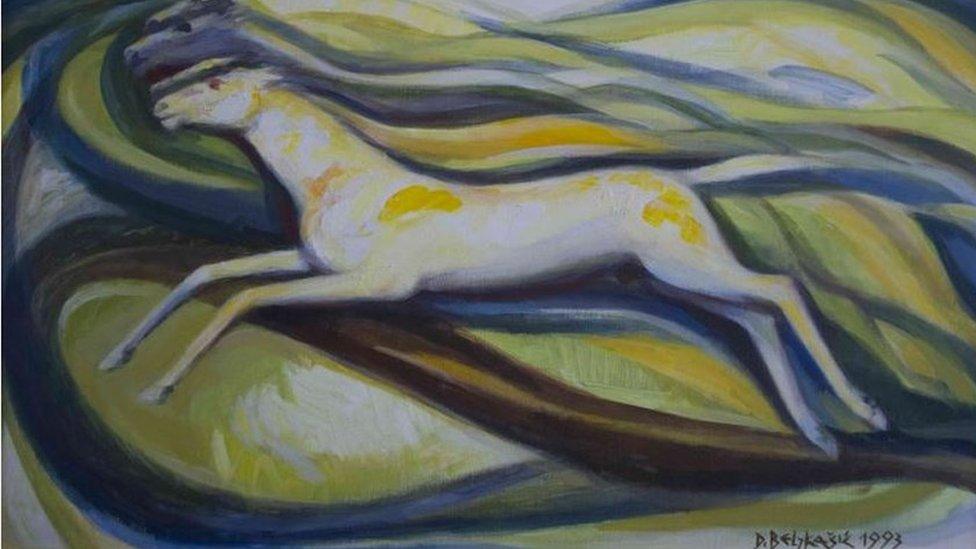
The south-west English landscape was a form of inspiration for Mr Beljkasic
"Like with the Ukrainian people being taken into people's homes more recently, my parents' case is a great example of the generosity of the British people in modern times.
"An extraordinary kind and generous family in Wiltshire gave them a temporary home at that initial, most difficult time. "
Over two million Bosnians were displaced by the war, and some of them fled the country with the help of the Red Cross and the British Government.
The Bosnian Genocide Educational Trust estimates that around 10-15,000 Bosnians and their descendants still reside in the UK.
Upon arriving in Bristol, Dobri Beljkasic joined an art club and reneged on his vow never to paint again.
Ms Smart said: "For my father, the landscapes of Wiltshire, Bristol and the south-west in general gave a lot of inspiration and he carried on painting here.
"My father's story forms part of the Bridging Histories, external project, bringing together different people of all backgrounds to celebrate the cultural diversity in Bristol."
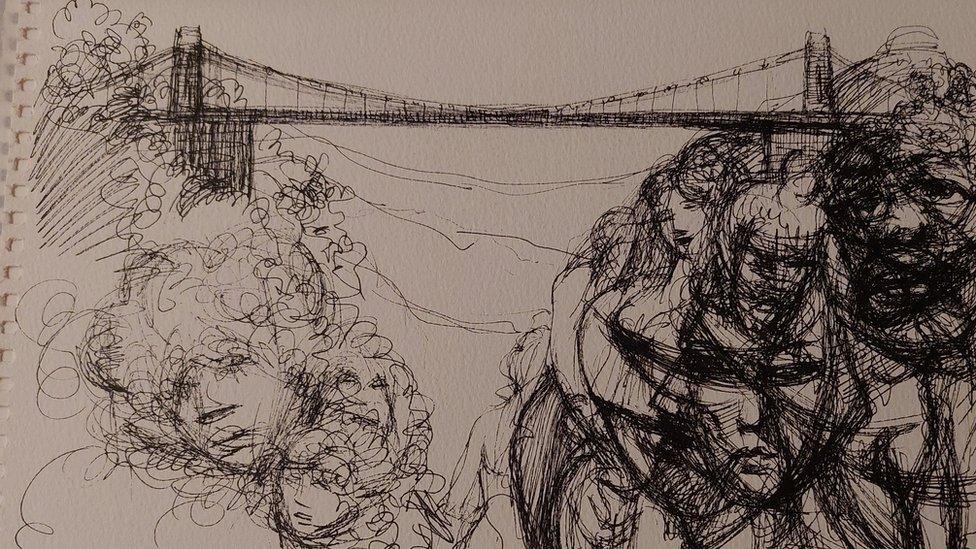
Mr Beljkasic was known as 'the painter of bridges'
Bridging Histories is a We Are Bristol History Commission, external project funded by Bristol University.
"Bridges - including the Suspension Bridge - were common motifs in my father's paintings," Ms Smart added, "He was fascinated by their physical presence, and as a metaphor for connecting people, places and time.
"The name Bristol comes from Brigstow, the place by the bridge. What a fitting place for him to settle and start a new life."
Dobrivoje Beljkasic's work is in the permanent collections of Bristol City Museum and Art Gallery, the National Gallery of Bosnia and Herzegovina and the City Museum of Sarajevo.
His work was included in Moved By Conflict exhibition at MShed in 2014 and Refuge and Renewal exhibition at the RWA in 2020.

Follow BBC West on Facebook, external, Twitter, external and Instagram, external. Send your story ideas to: bristol@bbc.co.uk , external
.